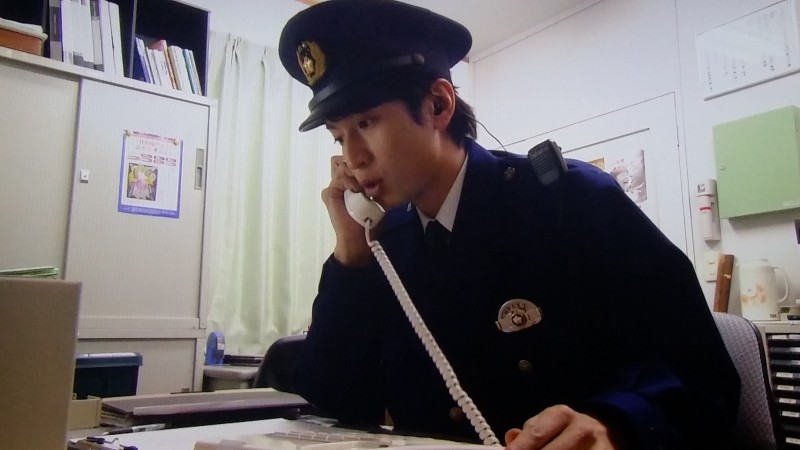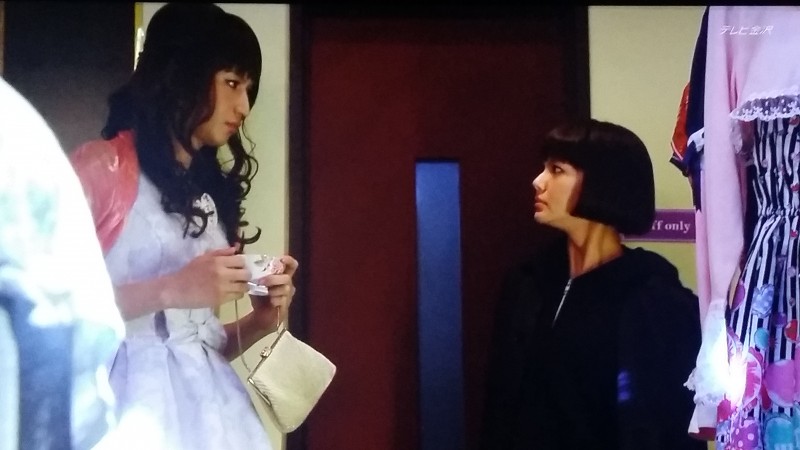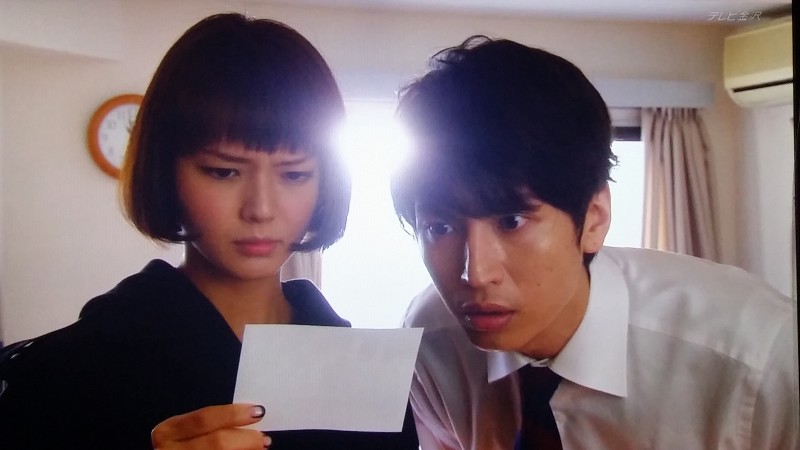Do-S Deka, First Impressions
” Aren’t you an idiot? ”
It’s the key phrase Detective Kuroi Maya’s uses when she berates her criminals. Time and time again, she uses their weaknesses against them to subdued and capture, later mocking them with four simple words, ” Aren’t you an idiot (バカじゃないの)?”
She’s callous and calculating, using anything within her grasp so solve a case. She lacks any tact or sense of justice and it seems the only reason why she’s able to get away with anything is because her father is the vice chief of the metropolitan police.
On the other hand, there’s the patrol officer Daikanyama Shuusuke who is the absolute opposite to Kuroi in every way. He’s sensitive, selfless, and extremely dimwitted. Its these characteristics that has kept him a patrol officer for so long, but after a chance meeting at a crime scene he suddenly gets a promotion as a detective and a new nickname, Daikansama…
Everything seems to be going well until he realizes that his partner is, well, crazy and he’s not just any detective. He’s her “servant”. But, luckily for Kuroi, his dimwitted straight forward personality keeps him from doing anything about it.
Do-S Deka is bases off of a best selling light novel series of the same name about a brilliant detective with a very sadistic personality only serves in the force to look at dead bodies. But the black humor that liters the books seems to go by the wayside for more atypical slapstick humor that would resonate with a wider audience.

This drama is in every way what you would call a “barter” drama. In Japan, sometimes roles in television shows are not auditioned but handed out in order to get something in return. Let’s say that in order to boosting the ratings in a time slot, a television studio will “barter” with a talent agency for one of their more talented faces and in return the talent agency will request something from the television studio. Usually the show’s theme song or multiple guest appearances on their television shows. Sometimes, the theme song is not enough, and the talent agency will request that instead of the theme song they want a certain time slot. This will then give the television studio an opportunity to demand more of a higher profile artist.
So, needless to say, the acting is pretty much on par with the whole “barter drama”. The actors in the roles weren’t necessarily picked for their ability to portray the character, rather they were just selected because there was something to be gained on both sides (NTV got Ohkura Tadayoshi, garnering the Kanjani8 fans, and Johnny’s got free promotion on Kanjani8’s next single by using it as a theme song). Almost everyone on this cast got a role on this show due to NTV’s bartering with their talent agencies or the artists connections within the television studio itself so the acting seems as if everyone is doing it for the paycheck rather than the fact that they actually care about the characters they’re portraying.
It’s campy, campy, campy in every sense of the word but when you considering how over the top the story and lead character are, it sort of works out.
So while the drama’s camp levels are at danger levels, it does manage to introduce the two main characters and their characteristics clear and concise so that we’re able to understand this bizarre buddy-cop relationship. It also helps that the two leads have worked with each other on previous dramas, making their on screen-dynamic smooth and believable rather than tense and awkward. It’s probably one of the good things about this drama, since everyone else is clearly forgettable.
The writers have set up some backstory that will be revealed later on throughout the series. Apparently there’s a connection between Kuroi and Daikanyama, though what that connection is and how deep it runs is entirely up in the air. There’s also the story between Kuroi and her ever so powerful father in the police force. But these things are merely mentioned in brief moments since it seems as if this drama will be episodic case-by-case, focusing more on Kuroi humiliating Daikanyama for her own sadistic pleasure in order to get to solve a case before the rest of the department can.
The only questions would be, at this point, is how long can this last and when will Daikanyama reach his own breaking point? Not only is he 7 years older than her, but physically stronger and taller than her. While this might not be an issue in Western society, this is obviously a huge punch in the gut in Japanese society (he is clearly her senpai in every sense of the word, but yet, their positions in the force makes him a kouhai). How will that continue to work out?

This show is definitely not trying to reinvent the wheel and it’s not doing anything groundbreaking. The only thing it can really do is make sure the jokes and stereotypes don’t become dry by the end of it’s run. I hope there’s more tests to their character dynamic in comparison to seeing Kuroi say mean things and Daikanyama huddle in a ball, whining and crying about how mean they are. Also, I hope the unnecessarily large supporting case have some moments to shine… Because, right now, the focus is all on Kuroi/Daikanyama and group of lackeys that are playing support are really nothing but a bunch of captain-obvious-one-liner-joke machines.
But hey, if all else fails, at least Japan was blessed to see 6’0” tall Ohkura Tadayoshi scream like a wimp during a knife fight in a dress. From watered down Christian Gray in a 2014 summer block buster movie hit to dimwitted, wimpy, police officer. At least we know the actors have thrown pride against the wind for that ¥¥¥¥¥. Thank you, NTV.
